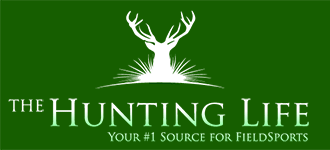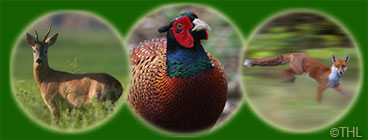Can The Hare Survive A Hunt Ban
Taken From the Lincolnshire Echo - February 28 2003
A couple of weeks ago I had the privilege of attending the Hare Supper, at the Haycock Inn at Wansford, near Peterborough. This annual event has been going for fifty years. It attracts mainly farmers and those associated with the land from the East Midlands and farther afield -- around 240 this year. It's not sponsored by any larger organisation. Its committee exists for no other purpose than to organise an annual dinner.
Apparently hare was chosen for the menu at the first post-war dinner when beef was scarce and expensive, but there were hares aplenty. Now, a cheap beef substitute has become a delicacy in its own right. But for those who find hare too strong, there was a "vegetarian" option -- roast beef!
Last week I attended a much less convivial meal, with other East Midlands MEPs. It was a lunch in Leicester organised after a press briefing by the London Office of the European parliament (Yes, they have a London office, though I've no idea why they need one). I happened to let slip that I planned to attend the Waterloo Cup, at Altcar in Lancashire. This is Britain's premier hare-coursing event.
Two colleagues, Labour's Mel Read, and Bill Turncoat Dunn (who was elected as a Conservative but now sits as a Lib-Dem) exploded in self-righteous indignation. Surely I could not support hare coursing? It was, well, cruel! This was surprising coming from Bill, as he has in the past told me he is a great supporter of beagling. I shall be interested to hear how hunting and killing hares with beagles is OK, but not with greyhounds.
Mel Read showed her abysmal ignorance of country sports (and a typical Labour prejudice) by ironically wishing me "A good day with the toffs". Surely a Labour parliamentarian should know that coursing is overwhelmingly a working-class sport, very popular with miners.
This Labour government is keen on protecting cute, cuddly foxes. But cute foxes hunt and kill literally millions of rabbits, hares and other small mammals and birds (not to mention chickens and lambs) every year. No one seems remotely concerned about this vast slaughter of small animals, but they explode with moral outrage over a few hundred hares a year taken by greyhounds at coursing meetings.
In fact virtually every animal that exists is either predator, or prey, and frequently both. Or as the bumper sticker puts it, "Hunting is natural -- 10,000 foxes can't be wrong". We might as well campaign against the weather as campaign against hunting.
The hare is finely adapted to evade predators by running and dodging. But it is a well-known principle of evolution that highly-evolved adaptations like flight, or sight, or the hare's speed and agility, will regress if not used. Classic examples are flightless birds on remote islands, or blind insects in dark caves. If we imagine a world in which hares were protected from predation for many generations, they would regress. The would lose their characteristic speed and agility. They would end up not hares at all, but over-sized gerbils.
There is overwhelming evidence that hare numbers increase on coursing estates, where agriculture is managed in the interests of the hare, but are in decline elsewhere. For the ordinary farmer, the hare is merely a pest.
Of course if hare-coursing is banned, there will not be any less coursing. There will just be more illegal coursing. And as farmers and rural policemen know, illegal coursers are a pretty unsavoury lot. The best strategy for a farmer to deter illegal coursing is to shoot every hare that moves, and many will.
Like much well-intentioned legislation, a coursing ban will have unintended consequences. One of those consequences could well be the extinction of the hare in England.
I hope and pray that in a hundred years there will still be wild hares in England -- and greyhounds and lurchers to give chase. But with a hunting ban, I doubt it.

